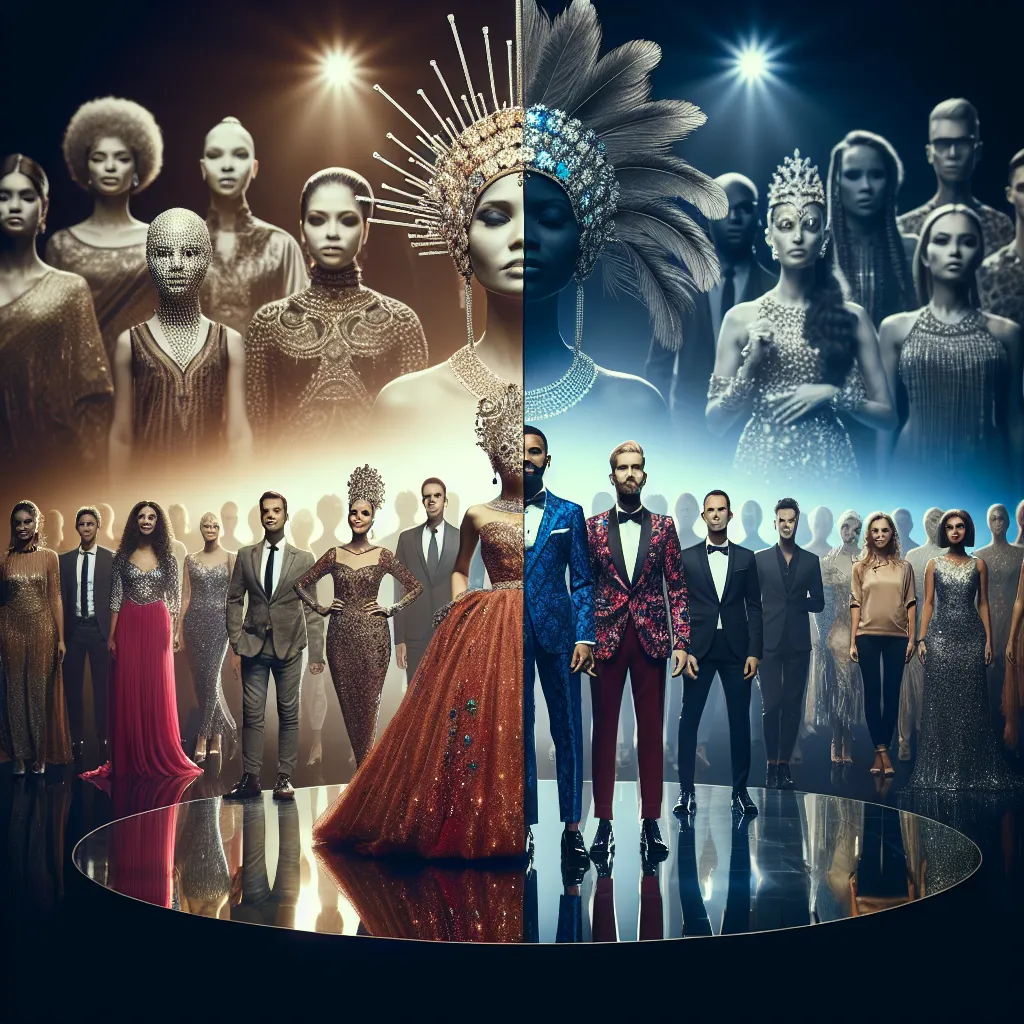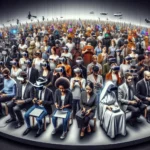The Deceptive Allure of Reality TV: Unmasking the Truth
Reality TV has become an integral part of modern entertainment, captivating audiences with its seemingly unscripted drama and the promise of an authentic glimpse into the lives of its participants. However, beneath the surface, the allure of reality TV often proves to be deceptive, masking the truth behind carefully crafted narratives and dramatic editing. While viewers are led to believe that they are observing unfiltered reality, the truth is far more complex.
The deceptive allure of reality TV lies in its ability to present a glorified and often distorted version of real life. Participants are carefully selected not only for their personalities but also for their potential to create compelling storylines. Once on screen, they are subjected to a range of manipulative techniques, from selective editing to staged situations, all designed to heighten tension and boost ratings. As a result, what audiences see is far from a genuine representation of reality, but rather a carefully constructed narrative that blurs the line between fact and fiction.
Furthermore, the emotional and psychological toll on the participants is often downplayed or entirely overlooked. The quest for dramatic content can lead to distressing situations being exploited for entertainment, with little regard for the well-being of those involved. This raises serious ethical concerns about the impact of reality TV on both its participants and its audience, as the line between genuine human experience and manufactured drama continues to blur.
It is crucial for viewers to unmask the truth behind the deceptive allure of reality TV and approach it with a critical eye. By understanding the carefully constructed nature of the narratives presented, audiences can better appreciate the entertainment value of reality TV while also acknowledging its limitations in reflecting real life. Only then can we have a more honest conversation about the role and impact of reality TV in today’s media landscape.
Manipulation Behind the Scenes: Exposing the reality of Reality TV
Unveiling the truth behind reality TV reveals a complex web of manipulation lurking behind the scenes. As audiences immerse themselves in the drama, excitement, and suspense of reality TV shows, few are aware of the carefully crafted narratives and behind-the-scenes manipulation that shape their favorite programs. The very essence of reality TV is often called into question when the truth of its production is brought to light.
Exposing the reality of reality TV unveils the extensive editing, selective casting, and orchestrated scenarios that go into creating the captivating storylines viewers are presented with. The “real” events witnessed on screen are often heavily manipulated to fit a predetermined narrative, leading to a skewed portrayal of reality. Behind this carefully constructed façade are producers and editors who craftily shape the footage to create heightened drama and conflict, capitalizing on the vulnerabilities of the participants.
Manipulation behind the scenes extends to the selective editing and post-production techniques used to mold the raw footage into a compelling narrative. The use of clever editing can change the context of a situation, leading viewers to form biased opinions about the participants. Furthermore, the casting process itself aims to bring together individuals with clashing personalities and viewpoints, intentionally fueling conflicts and tensions to boost ratings and maintain audience engagement.
Unveiling the truth behind reality TV sheds light on the intricate manipulation tactics employed to enthrall audiences, sparking a crucial conversation about the ethics and authenticity of reality television. While the allure of reality TV remains undeniable, understanding the concealed machinations at play behind the scenes is essential in critically analyzing the content presented on screen.
The Impact of Scripted Reality: Unveiling the Illusion
Scripted reality TV shows have become a staple in the entertainment industry, captivating audiences with their seemingly authentic portrayal of everyday life. However, the impact of scripted reality on viewers and society as a whole unveils a different story, one that raises questions about the authenticity of these programs and their influence on our perception of reality.
While scripted reality TV may blur the lines between fact and fiction, it’s essential to recognize the implications of presenting staged scenarios as real-life events. Viewers often develop emotional connections with the characters and storylines, believing them to be genuine and unscripted. This can lead to a distorted perception of reality, as audiences internalize the fabricated narratives as authentic experiences.
Furthermore, the prevalence of scripted reality can perpetuate unrealistic standards and behaviors, as individuals may model their lives after the dramatized situations portrayed on these shows. The perpetuation of contrived conflicts and sensationalized relationships can contribute to a culture of manufactured drama, impacting our societal norms and interpersonal relationships.
As we unveil the illusion behind scripted reality, it’s crucial to critically examine the influence of these programs on our collective consciousness. By recognizing the scripted nature of these shows and promoting media literacy, we can empower viewers to approach reality TV with a discerning eye, distinguishing between entertainment and genuine reality.
In conclusion, while scripted reality TV may offer entertainment value, its impact on perceptions of reality and societal norms cannot be overlooked. As we delve into the complexities of these programs, unveiling the truth behind the illusion is paramount in understanding the broader implications of scripted reality on our culture and individual perspectives.



